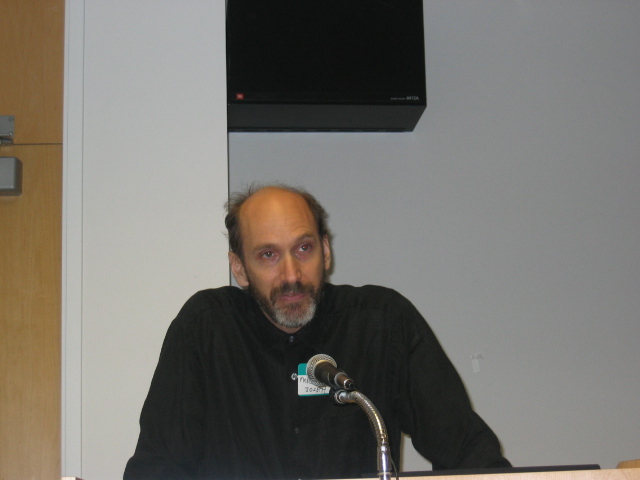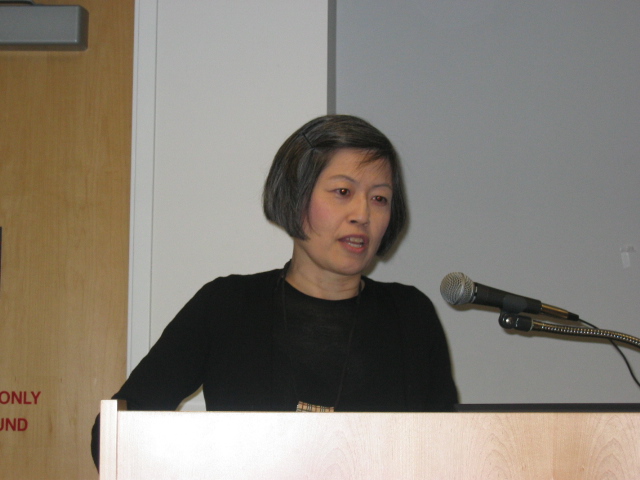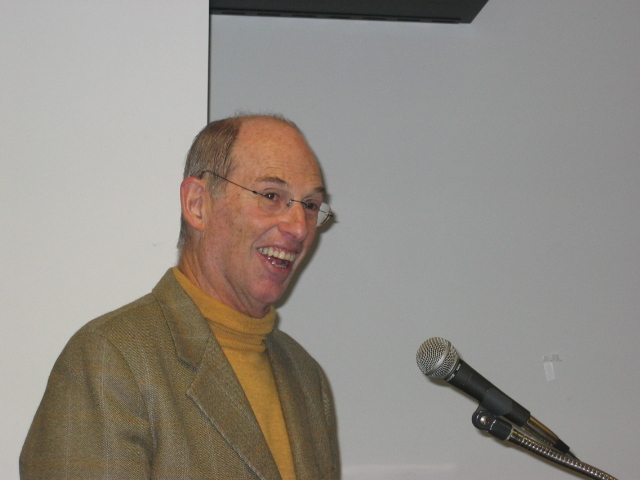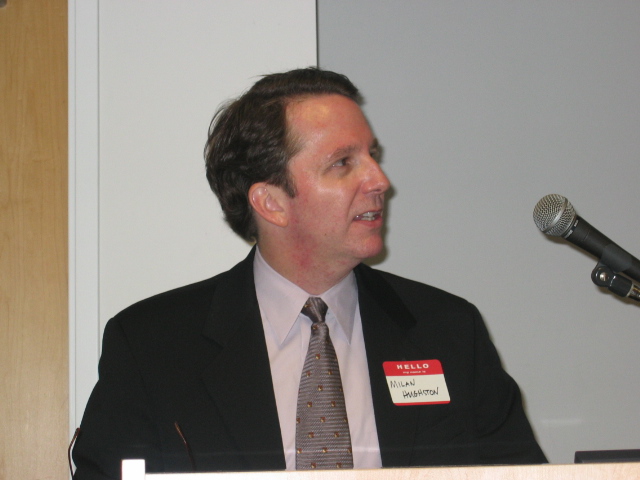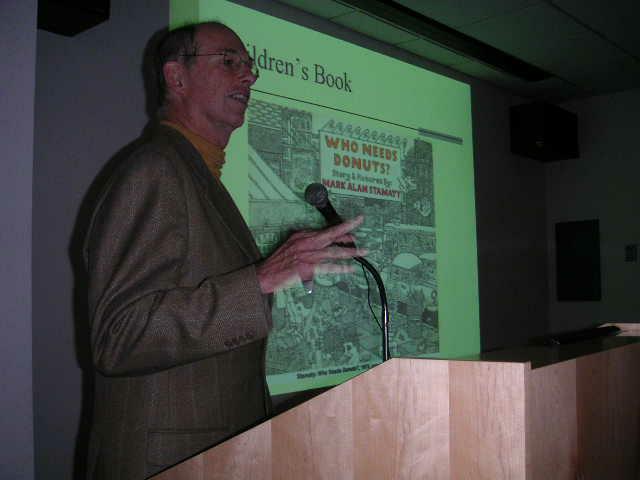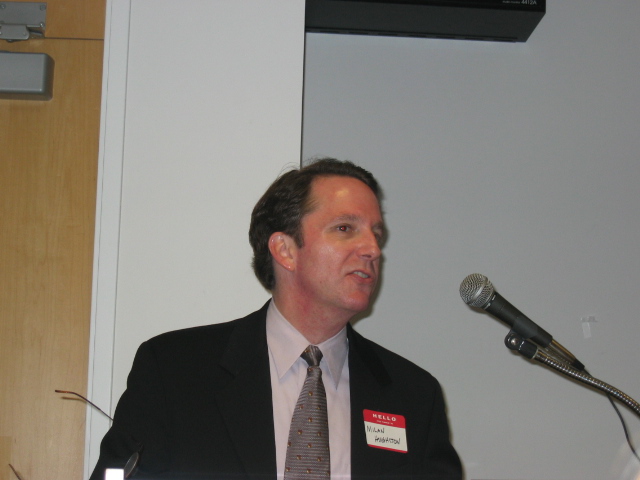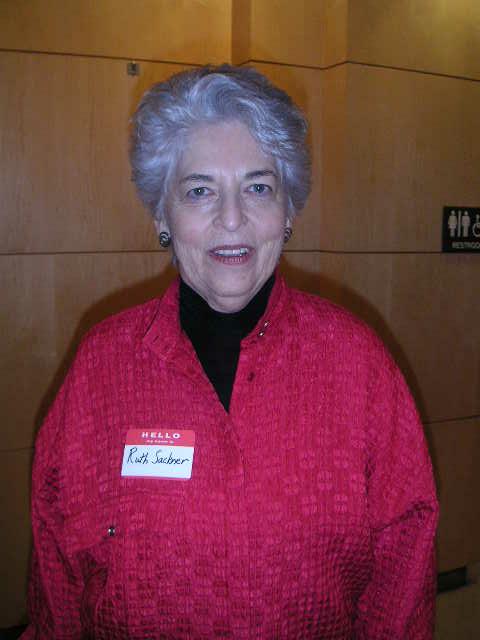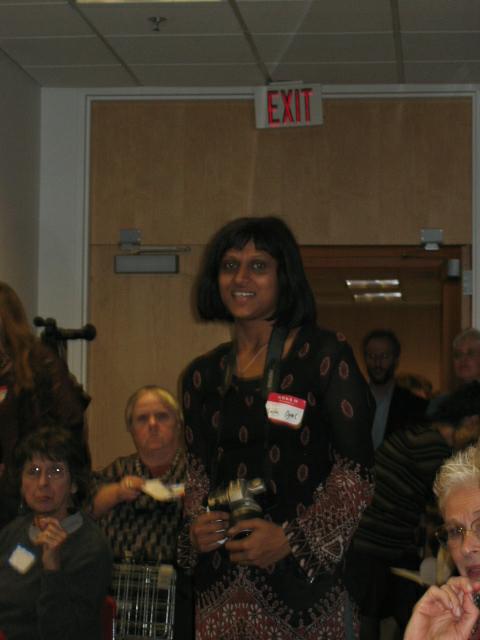Ninth Annual New Jersey Book Arts Symposium
Styles of Collecting, Styles of the Book
Photos: Morning Panel
For this year's New Jersey Book Arts Symposium, we reversed the customary order of our events, placing our scholarly panel in the morning rather than in the afternoon. The panel organizer, Constance Woo (Dean of the Library and Curator of Artists' Books, Long Island University, Brooklyn Campus), identified herself as a librarian/collector, teacher and bookmaker. She discussed a range of topics surrounding the topic of institutional collecting, which tended to fall into two camps: the nature of collecting policies, and her own curatorial inclinations (which were later illustrated and further developed by a slide presentation of books in her library's collection and in her own artists' book collection). She said that although no more than 5% of a library's materials budget normally goes to collecting for special collections, in practice the percentage is usually much lower, possibly as low as 1%. While a budget of this diminished size can hardly lend itself to acquisitions of more than $300, she asked, rhetorically, "what kind of collection can you build if you only buy books for less than $300?" In describing various ways of organizing a collection (theme, genre, artist, &c.), she gave a whirlwind history of the artists' book movement. In opposition to the structure of a collecting policy, Dr. Woo then noted that some curators will simply buy what they like. They will depend upon their own aesthetic sense and judgment, which cut across the borders between structural or historical categories. She gave her own personal criteria as "originality, complexity and beauty," a category which, she noted, half-apologetically, "may no longer be politically correct." While Dr. Woo advanced many original opinions, she was very candid about admitting influences, noting that her thinking was shaped by a course she had with Johanna Drucker at the University of Virginia's Rare Book School, and that her encounter with Marshal Weber and Booklyn proved to be a "seminal point in her thinking." Booklyn, she said, "opened her eyes to the importance of strong conceptual content," which, she insisted, must be part of an artists' book: "works that are merely formally strong but conceptually weak are not art," she said, but are "merely decorative." Dr. Woo listed a series of questions she felt were important, and which she had supplied the panelists in advance of the panel. These included: "What are the real determining criteria behind collection decisons?" "Should the field of artists' books be accepted into the art world mainstream?" "Is the current mode of distribution absorbing new developments in the field? What intellectual and artistic goals does the collection serve?" "What socially progressive goals does it serve? Should it [serve any]?" "Are concept or topical concern more important than contextual and cultural concerns?" "Are libraries prevented from promoting knowledge for progressive purposes by a tradition of conservatism?" Dr. Woo declared that denial of content winds up reinforcing reactionary stances toward culture. Implicit in her presentation was the suggestion that the nature of a collection is formed by the conflict between the demands of the institution (which are apt to be conservative), and the tastes of the individual curator (more progressive, tending toward the present and the future), and that curators must be diplomatic, creative, and well-informed.
Michael Joseph: Introduction to Styles of Collecting, Styles of The Book [PDF]
